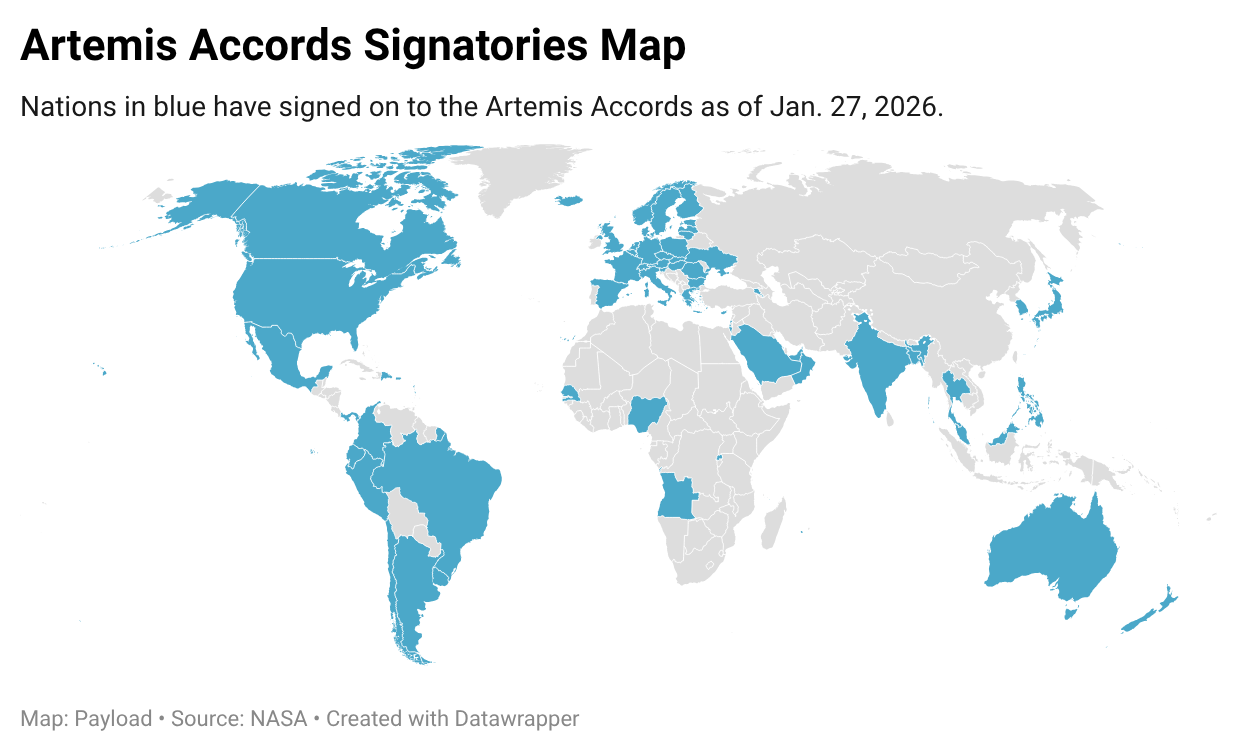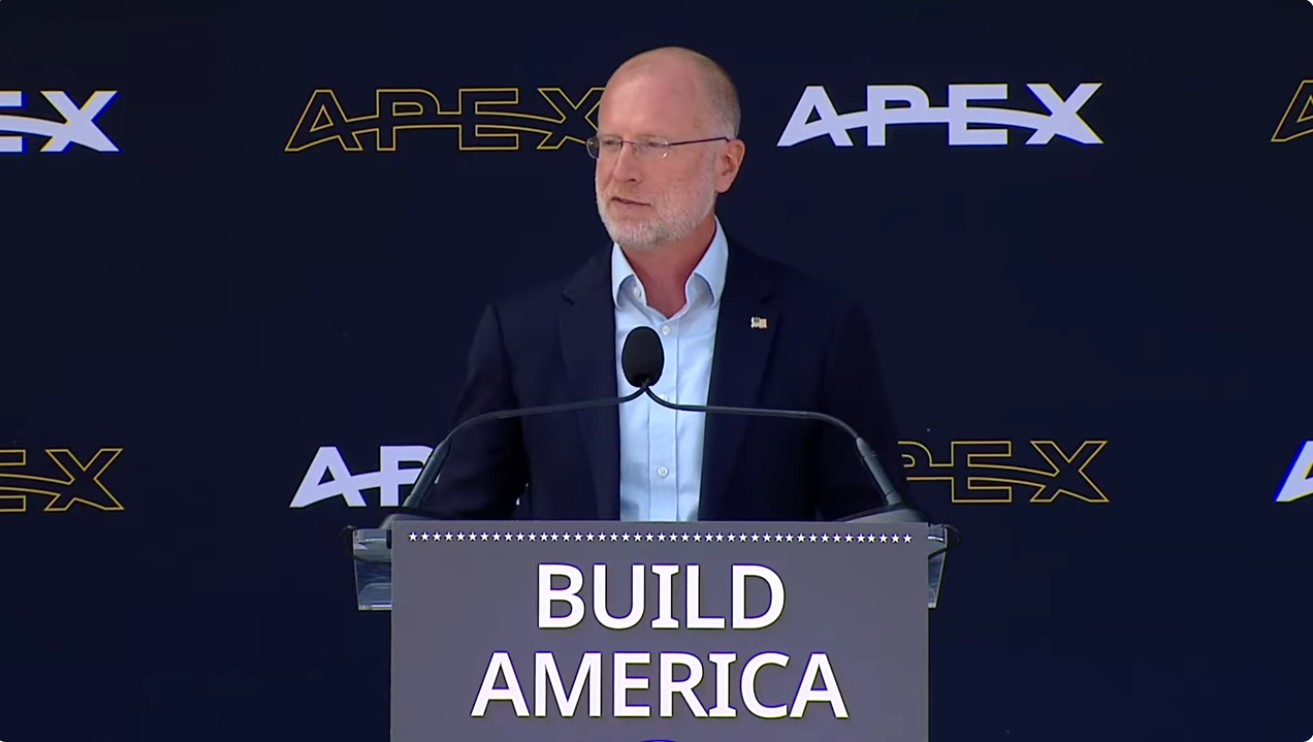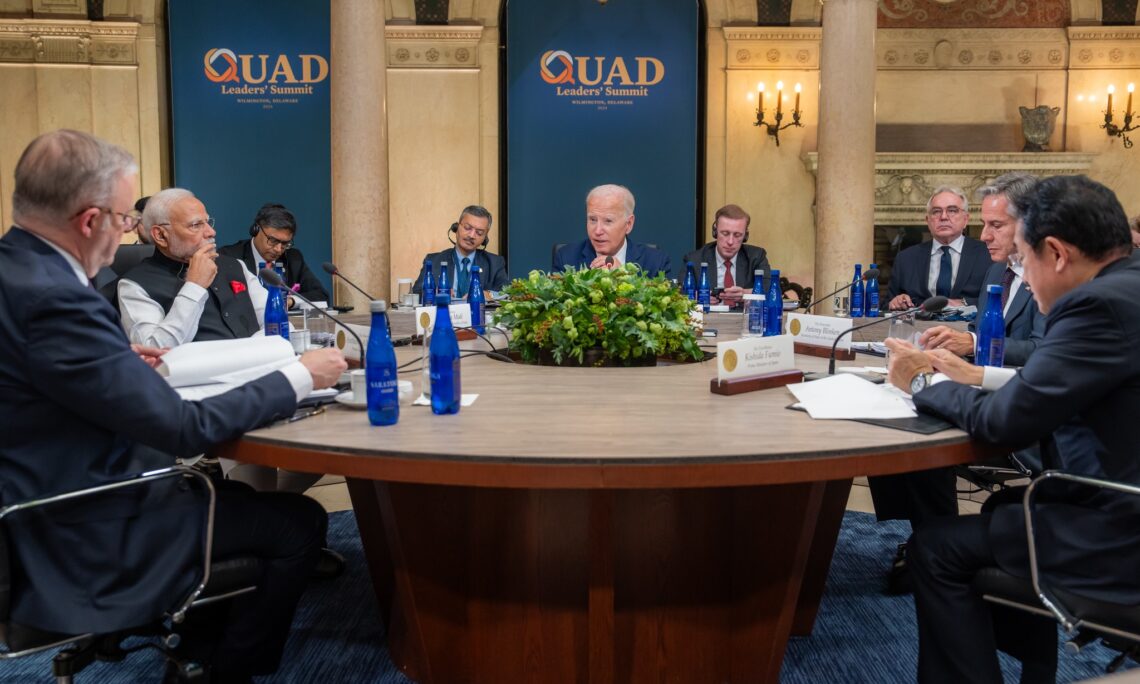Polaris
Stories from Payload’s weekly space policy newsletter, Polaris.
The Artemis Accords By the Numbers
The accords celebrated their fifth anniversary last month. As such, here’s a roundup of where they stand.
DoD Space Policy Nominee Fields Questions on Org Structure, Golden Dome, China
The nominee to lead the Pentagon’s space policy wants to streamline collaboration between the Space Force and NRO.
Bridenstine on DoD’s Cislunar Goals, CLPS, and Returning to the Moon
“The reality is we’ve got to do what we’ve got to do to secure this country,” he said. “We can’t just pretend like we don’t need to know what’s happening out there, from a national security perspective.”
WEF Launches Space Policy Toolkit
“Everyone is using space data,” she told Payload. “This data is getting integrated into more industries, and used across the government. That’s the trend we see driving demand.”
Welcome to the FCC’s ‘Space Month’
FCC Chair Brendan Carr previewed some to-dos for the agency to make the US “the friendliest regulatory environment in the world for innovators to start, to grow, and to accelerate their space operations.”
Dems Slam Trump Admin For Implementing NASA Budget Without Congress’ OK
Whistleblowers told Congress that they’re already worried about the cuts affecting the safety of the agency’s programs, with one telling lawmakers that they are “very concerned that we’re going to see an astronaut death within a few years,” according to the report.
Industry Groups Call for Change to Spectrum Sharing Limits
In a letter sent to FCC Chair Brendan Carr on Monday, the writers said lifting equivalent power-flux density (EPFD) limits on non-geostationary sats would benefit both consumers and the industry.
House Bill Introduced to Boost In-Orbit Cooperation for Quad States
A space bill being considered by Congress is directing the defense secretary to look for opportunities to collaborate in orbit with Indo-Pacific allies.
Lawmakers Will Debate Space Amendments to NDAA
House lawmakers submitted 1,100+ amendments to the NDAA. The rules committee met yesterday to decide which ones will be considered on the floor this week. Here’s what’s in, and what’s out.
Scientists Call For New Agency to Promote, Oversee Space
The Federation of American Scientists recommended that the Space Promotion and Regulatory Agency should be formed by merging the FAA’s Office of Commercial Space Transportation and the Commerce Department’s Office of Space Commerce.
A Policy Proposal For Happy Hour in Orbit
“This is not to squash anyone’s dreams. This is to say you can’t just go up there and use lead pipes to make bathtub gin.”
Organizations Band Together to Save NASA Science
The organizations’ plan is to educate members of Congress on the importance of NASA science, and the wide-ranging benefits the agency provides to the whole country.











